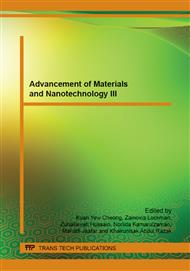p.201
p.207
p.211
p.215
p.219
p.223
p.227
p.231
p.235
The Influence of ECAP Pass through Bc Route on Mechanical Properties of Aluminum Alloy 6061
Abstract:
Equal Channel Angular Pressing (ECAP) is one of Severe Plastic Deformation (SPD) methods used to produce ultra-fine grains. In this study, aluminum alloy 6061 in a rod shape as a result from casting process was used in the experiment. The rod samples were then subjected to ECAP, up to 3 passes, through Bc route. The die channel angle of the ECAP is 1200. The changes in the microstructure and mechanical properties of the samples deformed by 1-pass, 2-pass, and 3-pass of ECAP were investigated. The results show that as number of ECAP passes increase, the applied strain accumulated in the samples also increases and the grains change from equiaxed to elongated structure. The hardness is proportional to the number of ECAP passes, and the highest value is 107 HV for 3 passes with strain value of 2.0.
Info:
Periodical:
Pages:
219-222
DOI:
Citation:
Online since:
August 2014
Price:
Сopyright:
© 2014 Trans Tech Publications Ltd. All Rights Reserved
Share:
Citation:


